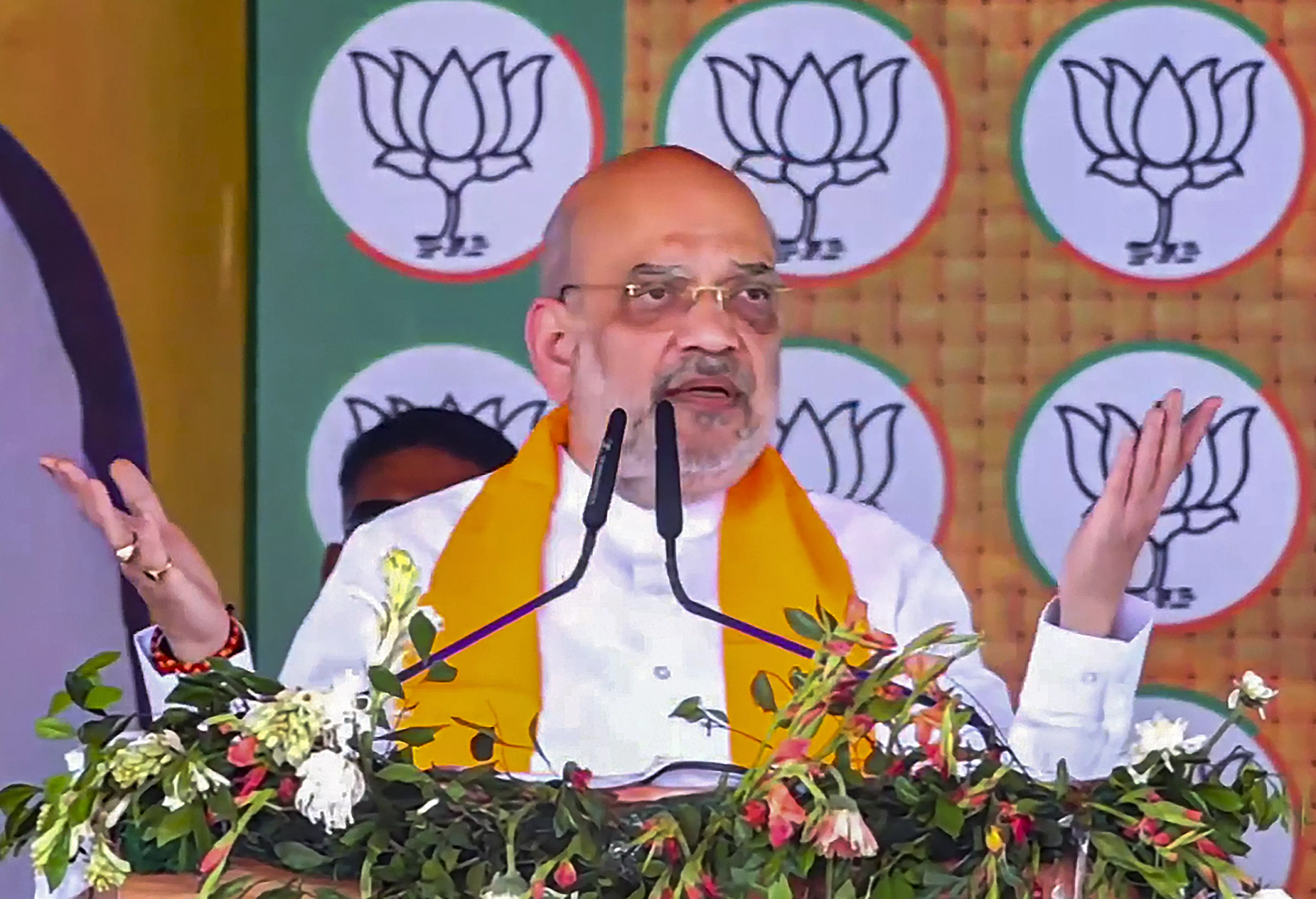Amit Shah Declares Uncompromising Stance Against Violence and Harassment Towards Women

Dharwad: Union Home Minister Amit Shah has declared the uncompromising stance of the party against any form of violence or harassment against women.
His remarks came in the wake of the alleged sexual harassment case involving JD(S) leader and NDA candidate from Hassan, Prajwal Revanna.
Expressing his concern, Shah pointed out the responsibility of the state government in addressing such matters promptly.
"Siddaramaiah and DK Shivakumar should acknowledge that it is their government in the state, and they ought to have taken decisive actions. Unfortunately, they remained inactive until after the elections in the Vokkaliga belt, allowing the accused to leave the country," Shah stated emphatically during the rally in Dharwad.
"If they have integrity, they should admit that their inaction facilitated the escape of a perpetrator of a heinous crime. While they may be our alliance partners, our stance remains clear. Anybody involved in such despicable acts must face swift and severe punishment," he emphasized criticizing
"The tragic murder of Neha in Hubballi raises questions about accountability. They dismiss such incidents as personal matters. Pro-Pakistan slogans echoed within Vidhana Soudha, yet Siddharamaiah claims ignorance. Perhaps he needs to address his hearing, as we could hear it loud and clear in Delhi," Shah asserted.
Highlighting the significance of the upcoming election, Shah contrasted the records of the BJP and the Congress.
"This election is crucial. On one side stands the corrupt Congress, while on the other is Narendra Modi, who, despite serving as Chief Minister and Prime Minister for 23 years, has remained untainted by corruption allegations. On one side stands Modi, who banned the PFI, and on the other, the Congress, which seeks support from the SDPI," Shah pointed out.
Shah also lambasted the Congress leaders for their absence at the Pran Pratista of Ram Lalla and the party's stance on the Bengaluru blast case, attributing it to appeasement politics.

